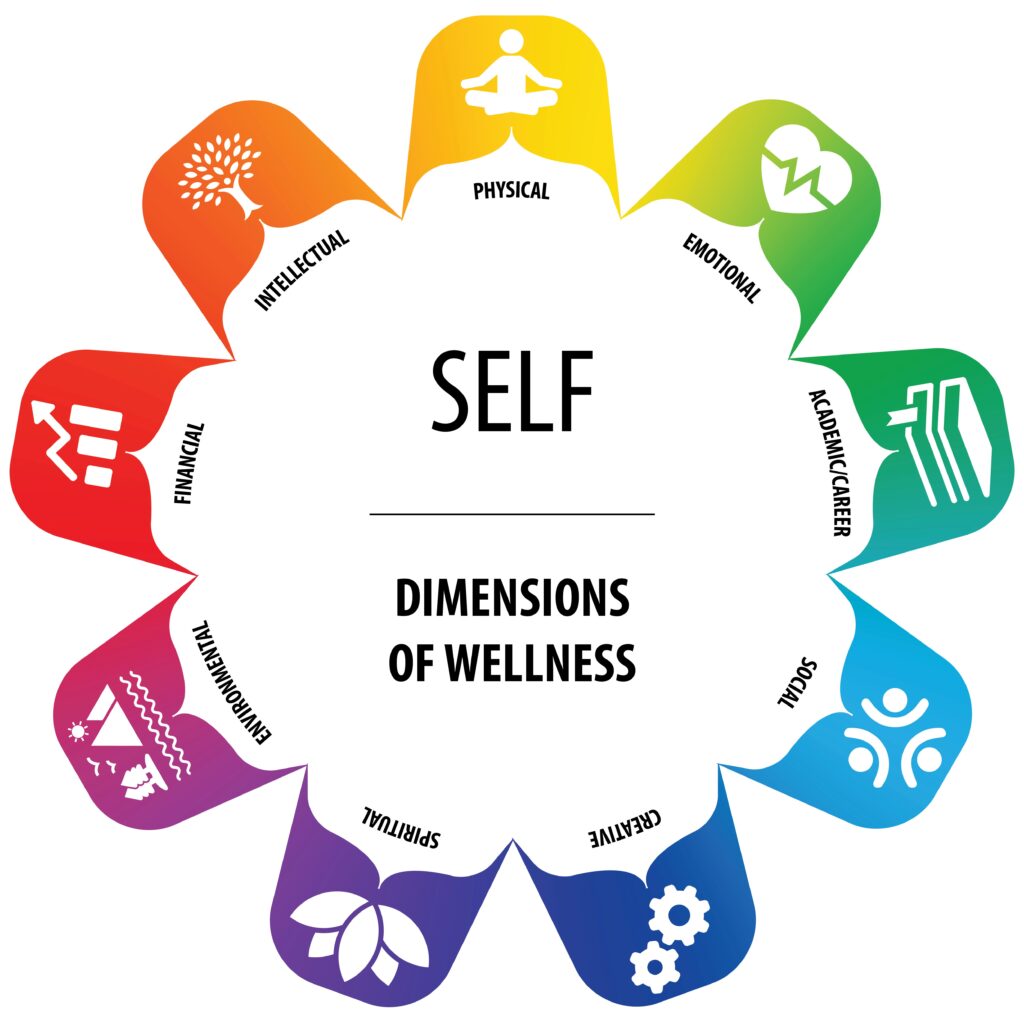When you hear the terms “mental wellness,” you might imagine it refers to a condition of constant enjoyment. But it goes beyond that. The human body, brain, and lifestyle must execute a complex dance that accommodates a wide range of emotions. Instead of being continuously cheerful, the key to mental wellness is navigating through these numerous life events and emotions with a sense of harmony.
What Is Mental Health and Wellness?
Mental well-being, in the words of the World Health Organization, is “a state of well-being in which the individual realizes his or her own abilities, can cope with the normal stresses of life, can work productively and fruitfully, and is able to make a contribution to his or her community.” The notion of well-being in a larger sense includes having positive feelings toward oneself and one’s life. Our mental health is comprised of our psychological, social, and emotional well-being.
The Wellness Wheel and Dimensions of Wellness
The following dimensions make up the wellness wheel:
Physical health
Emotional stability
Academic and career well-being
Social health
Innovative health
Spiritual health
environmentally sound
Financial stability
Psychological health

Mental health is a condition of mental well-being that allows people to cope with life’s stressors, realize their strengths, study and work effectively, and contribute to their community.
Types of mental health problems
- Anger.
- Anxiety and panic attacks.
- Bipolar disorder.
- Body dysmorphic disorder (BDD).
- Borderline personality disorder (BPD).
- Depression.
- Dissociation and dissociative disorders.
- Eating problems.
What causes mental health problems?
- Social isolation or loneliness.
- childhood abuse, trauma, or neglect.
- experiencing discrimination .
- social disadvantage, poverty or debt.
- losing someone close to you
- long-term stress.
- Chronicle physical health condition.
If you or someone experience one or more of these signs, it may be time to turn your attention to improving your mental health. Improving mental wellbeing can look different for each person, but there are some general recommendations to follow if you want to work on it. These are some examples:
- Allowing oneself to seek professional assistance if necessary
- Maintaining communication with friends, family, and the community
- Finding ways to maintain a good attitude
- Including physical activity in your daily routine
- Volunteering and assisting others
- Developing the correct coping skills for you
- Take care of your physical well-being.
- Make an effort to get more rest.
